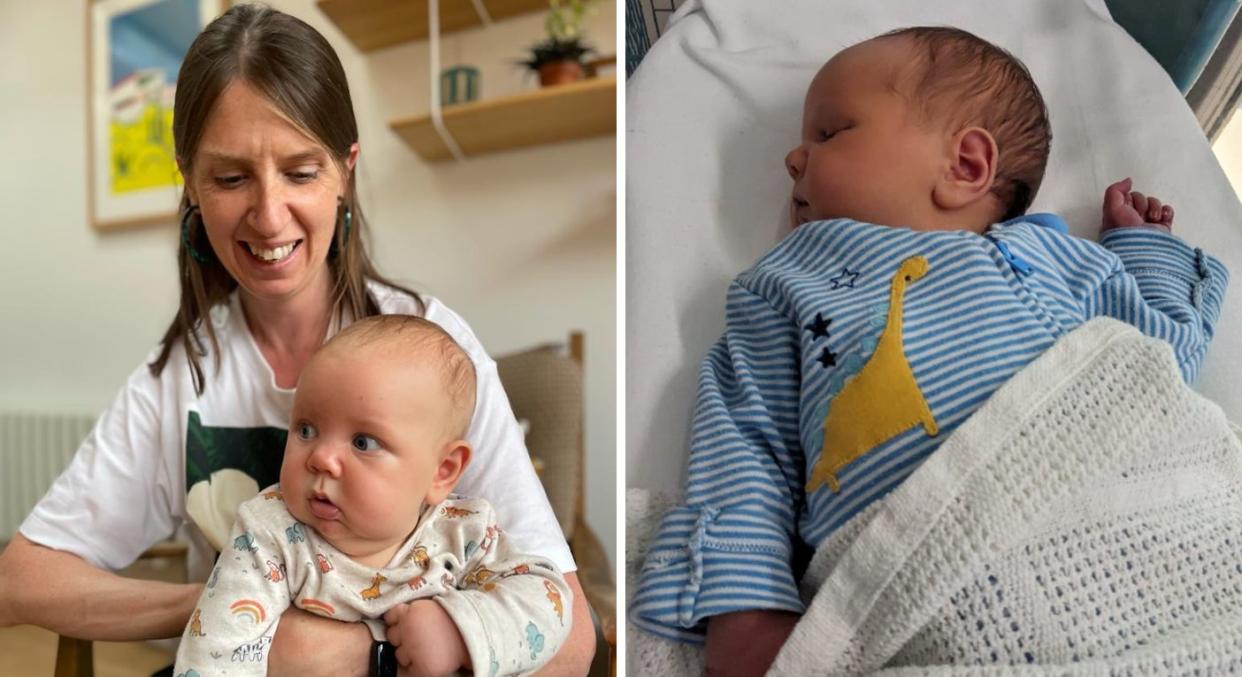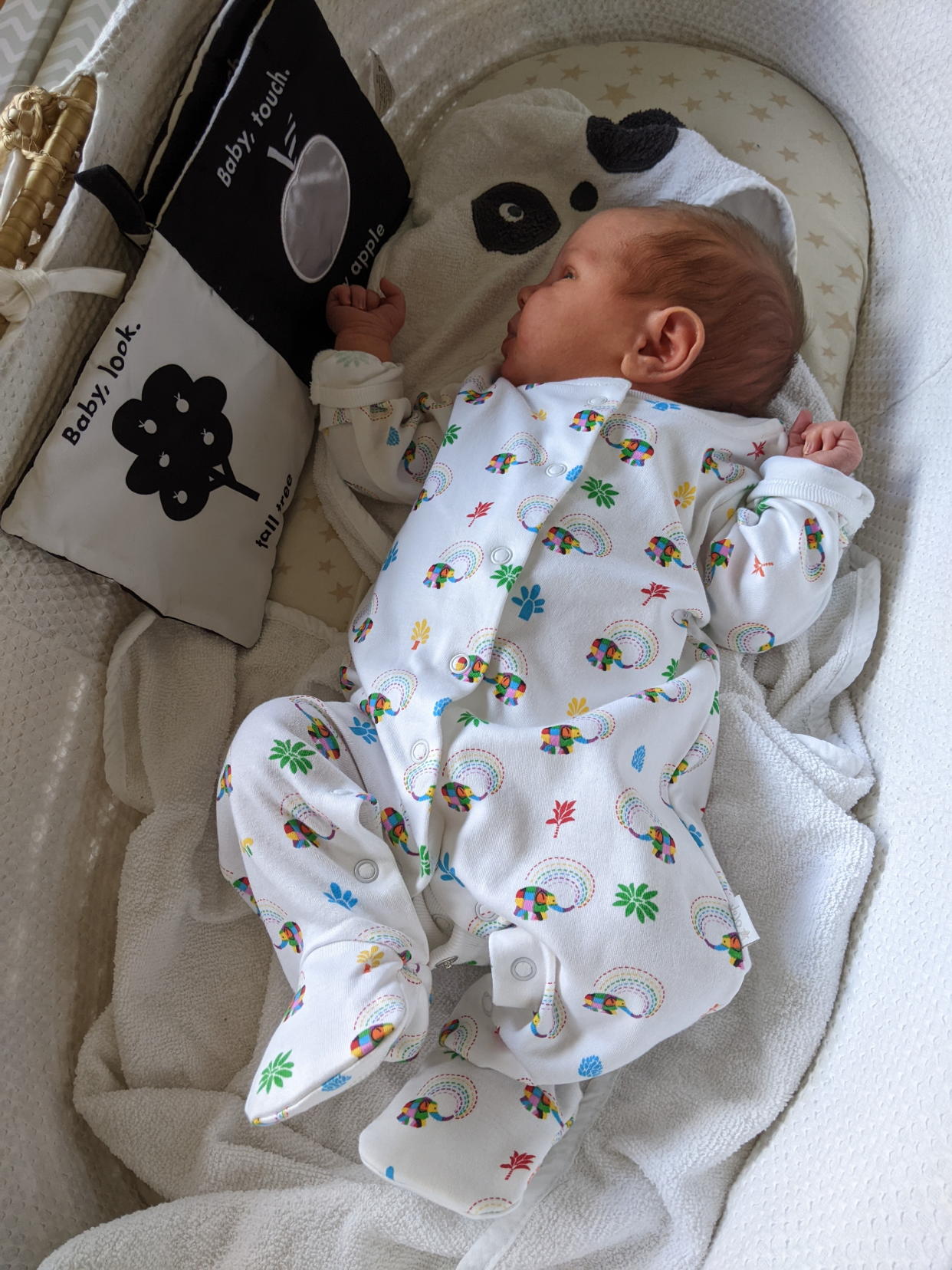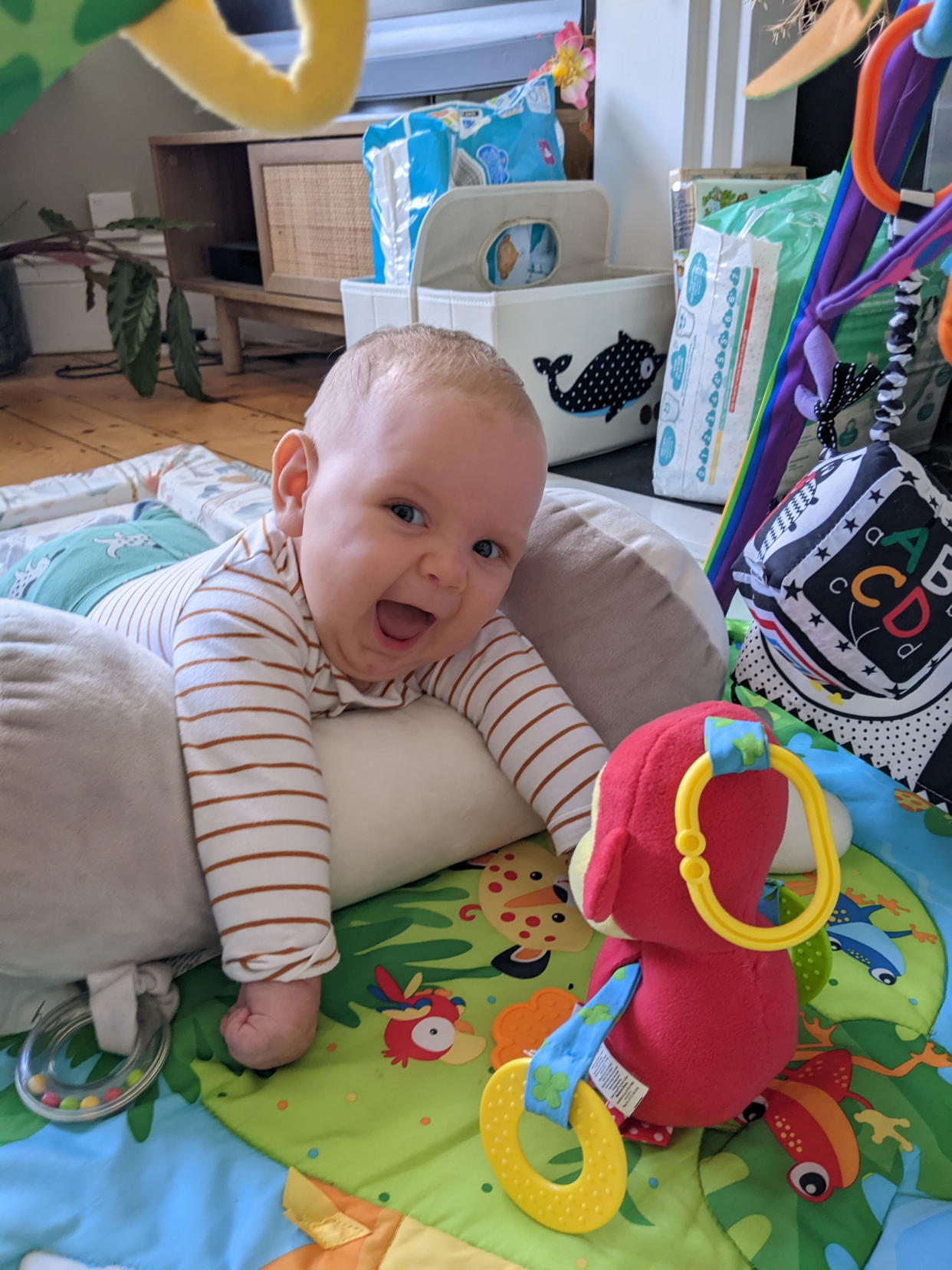Woman has a sperm donor baby after going through a break-up at 35

A woman has welcomed a sperm donor baby by herself after a break-up at 35 left her worrying about her "ticking biological clock".
Laurie Ledger-Hardy, 37, a clinical psychologist from Bristol, split from her long-term partner two years ago, and decided to focus on becoming a mum rather than finding someone new.
Having undergone her first round of IVF in October 2022, using her own eggs and donor sperm, she was thrilled to discover she was pregnant and gave birth to son, Kasper, in June last year.
"I always knew I wanted to be a mum and that became my priority, not finding a partner," Ledger-Hardy explains.
"At 35, my biological clock was ticking and I didn’t want to find myself suddenly too old to have a baby.
"Girls don’t get taught to reflect on their fertility and what might impact it, but if you’re not already a mum by your thirties it isn’t a bad idea to get your fertility checked out.
"You don’t want to find you’ve run out of time and have regrets."

Having decided to look into having a baby alone, Ledger-Hardy started her fertility treatment at the Bristol Centre for Reproductive Medicine, with an initial fertility 'MOT' revealing she had blocked fallopian tubes and would be unable to conceive naturally.
She was told by the clinic that she would have needed fertility treatment whether she was with a partner or not.
"The MOT showed that my ovarian reserve was good, which meant I had plenty of eggs available for fertilisation," she explains.
"But later tests showed both my fallopian tubes were blocked for an unknown reason. This meant I couldn’t have conceived naturally anyway.
"In fact, having this initial investigation would have been a good investment even if I’d had a partner, because we might have wasted a lot of time wondering why I wasn’t conceiving in the usual way."
Having decided to become a solo parent, Ledger-Hardy started by looking into sperm donors, considering certain traits and attributes including emotional intelligence, empathy and intellect - as well as ethnicity.
The donors also had to complete questionnaires about their health and education background.

"Because I'm likely to be bringing up the child on my own I was keen they should look like me," she explains.
"So I decided on a donor whose profile showed him as having similar colouring and ethnicity to me.
"I also decided to look at the extended profile they hold of the sperm donors, which lets you research his health and educational status - as well as the results of the emotional intelligence questionnaire he had completed.
"This gives an insight into how the donor scores on things like empathy, flexible thinking and agreeableness.
"It’s likely that Kasper will want to know about him when he gets older, and that’s fine by me."
Having spent three months focusing on improving her egg quality through diet and lifestyle changes, Ledger-Hardy embarked on her fertility journey, with the treatment - including the initial investigations, IVF and donor sperm - costing a total of £10K.
"My IVF treatment went well," she explains. "I had a short medication programme to stimulate my ovaries and it wasn’t too bad giving myself the necessary injections, once I got used to it.
"I had 15 eggs extracted and the team froze three good quality embryos."

Thankfully, the new mum conceived after her first embryo transfer in October last year.
Her other two embryos are still frozen at the fertility clinic, and can be used again at any point.
"I was so lucky - I got pregnant with the first frozen embryo transfer," she says.
While she had some complications during her pregnancy including gestational diabetes - a variation of the condition which specifically develops during pregnancy - Ledger-Hardy says she loved being pregnant.
She gave birth to her son, Kasper, now six months, on June 19 at Southmead Hospital, Bristol, who arrived weighing 8lbs 11oz - and is now making the most of every moment with her "precious baby".
Her friends and family were "very supportive" of the decision to go it alone - and are continuing to give her support as she settles into life as a new parent.
"I’ve still got two frozen embryos, so who knows what the future holds?" she says of potentially growing her family.
"But, for now, I’m just enjoying my maternity leave and making the most of this precious time with my lovely baby."
Egg and sperm donation: the facts
The trends in Egg, Sperm and Embryo Donation report from the Human Fertilisation and Embryology Authority (HFEA), reveals a dramatic increase in children born through egg, sperm and embryo donation over time.
The report shows that the number of children born with the help of a donor has risen considerably since the 1990s with over 4,100 children born in 2019 compared to around 2,500 in 1993.
Egg, sperm and embryo donation accounts for one in 170 of all births and for one in 6 births using IVF in the UK.
The HFEA defines egg donation as a woman going through part of the IVF process in order to have some of her eggs collected, which she can then donate to someone else's treatment, fertility research or training.
Women usually need to be between the ages of 18 and 35 to donate their eggs, although clinics may only allow eggs from an older woman to be used in exceptional circumstances, such as if you’re donating to a family member.
Before donation, a woman will need to undergo certain health tests to ensure they don't pass on any serious diseases or medical conditions to the baby or mother. Some clinics also set additional eligibility criteria, including minimum and maximum Body Mass Indexes (BMIs), but it is advised to talk to the fertility clinic about their process.
It's illegal to pay for either egg or sperm donation in the UK, but egg donors can receive compensation of up to £750 per donation 'cycle' to cover their costs.
Sperm donors can receive up to £35 per clinic visit to cover their expenses.
However, egg and sperm donors can claim more if their expenses for things like travel, accommodation and childcare are higher than this.
Neither egg nor sperm donors will have any legal rights or responsibilities to children born from their donation and won’t be required to pay anything towards their care.
However, children born from donations will be able to access identifying details which can allow them to contact the donor in the future. If they do choose to make contact, it’s up to both the donor-conceived individual and the donor to decide if they want to have any kind of relationship.
If you are struggling with fertility, speak to your doctor about what options there are for you.
Fertility: Read more
How does the IVF process work and who is eligible? (Yahoo Life UK, 6-min read)
Couple welcome baby after only retrieving one egg during IVF (Yahoo Life UK, 5-min read)
Couple raise £8k in four weeks to pay for IVF baby after 12 years of infertility(Yahoo Life UK, 3-min read)
Watch: 'I'm pregnant and nearly 40 - strangers say I'm too old to have a baby'
Additional reporting SWNS.


